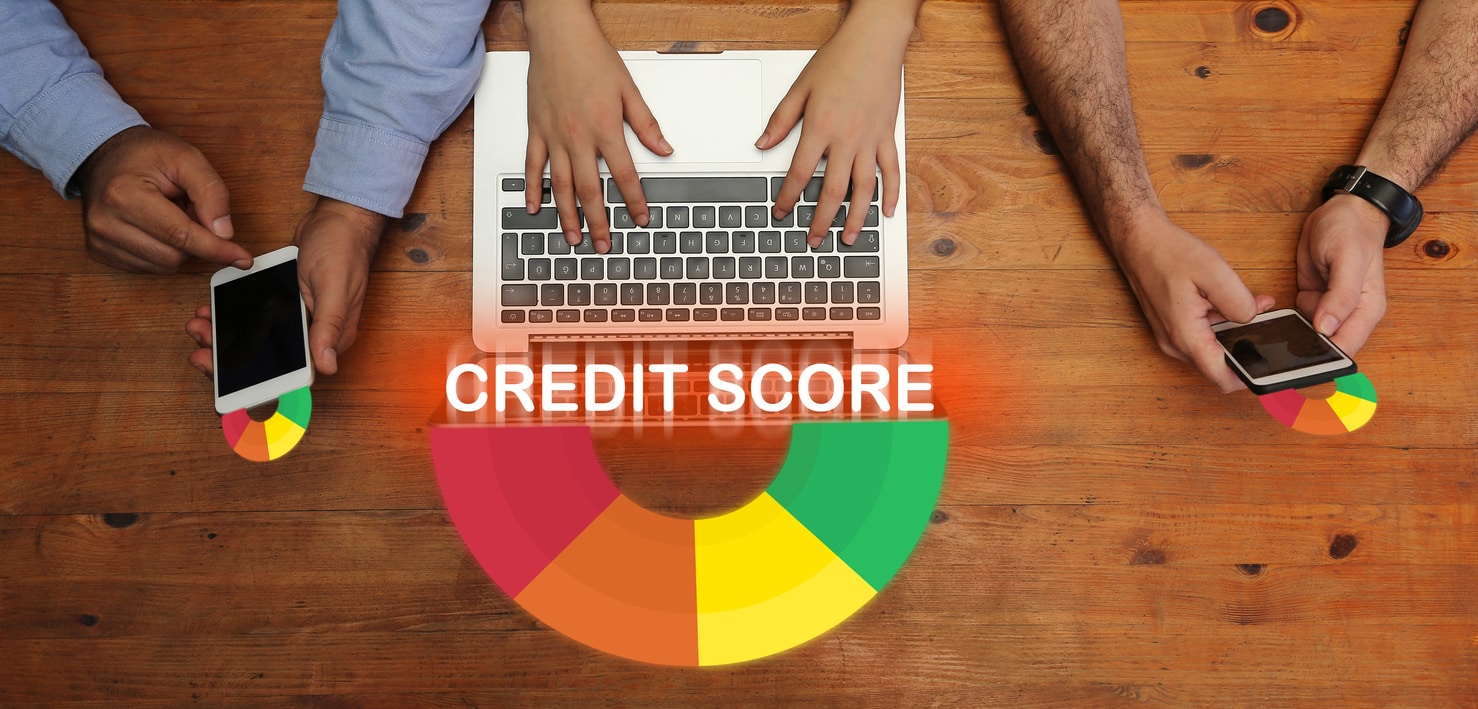- Meaning of Credit Report
- How does credit rating work?
- Characteristics of credit rating
- Benefits of credit ratings
- Credit Rating Agencies Vs. Credit Bureau
- Credit Rating Agencies
- List of Credit Rating Agencies in India
- Credit Rating Information Services of India Limited (CRISIL)
- CRISIL Rating Scale
- Credit Analysis and Research (CARE)
- Onida Individual Credit Rating Agency of India (ONICRA)
- Investment Information and Credit Rating Agency of India Limited (ICRA)
- Credit Bureaus in India
- How credit score is calculated
- Combination of credit products
- New Credit Enquiries
Meaning of Credit Report
A credit report is simply a summary of your credit track records. The credit report is a comprehensive record of your present and past debt, including the payment history. The credit report shows where you borrowed and how you managed your credit in the past. The credit rating is critical for an individual, business, or country since it impacts credit decisions. Lenders make use of these reports while taking credit decisions, including what interest rate and credit terms to be defined for a particular loan. Credit rating agencies collect, analyze and store the financial data that you have submitted to your lenders in the past. However, the individual need not report credit history to credit rating agencies. Below are the critical data that a credit report contains.
A. Personal information
- Name of the person as reflected in the documents that are linked to credit accounts
- Date of Birth
- PAN Card
- Contact number and email ID
- Social Security number (Ex Adhaar Card Number)
- Current and permanent address
B. Credit account details
- Credit history
- Mortgages
- Installments
- Defaults
- Credit limits granted
- Account balance
- Payment history
- The date of account open and closure
C. Collected items
- Liens
- Foreclosures
- Bankruptcies
- Civil suits
- Judgements
D. Inquiries
Credit reports enable lenders to decide if they will give you credit or grant a loan. The reports also support deciding what interest rate they should charge you. Insurers, employers, and rental property owners may also look at your credit report. You won’t know which credit report a creditor or company will use to check your credit history.
How does credit rating work?
Credit reporting agencies (CRAs) gather and preserve information for your credit reports. Each CRA manages its records and might not have data about all your accounts. Even though there are dissimilarities between their reports, no agency is more imperative than the others. And the information each agency has must be correct.
Fundamentally a loan is a financial obligation or a debt to be repaid. In other words, it is a promise that the borrower would repay the financial obligations within stipulated timelines as mentioned in the loan agreements. A high credit score refers to fewer probabilities of a borrower going default on his/her repayment obligations and vice versa.
Also Read: Financial Management – Meaning, Objectives, Functions, and Goals
Characteristics of credit rating
A few most common characteristics of credit ratings are briefly mentioned below:
- Credit ratings assess the borrower’s ability to repay the debt obligations including the principal and interest.
- Credit ratings are useful in analyzing the financial strength of the borrower and his abilities to make his money work for him.
- Credit ratings are expressed in alphabets, numbers and often alphanumeric symbols indicating a specific level of risk. These codes are created by professional experts by well-recognised institutions.
- Credit ratings are dependable since the ratings are calculated with the analysis of critical information related to the borrower and their credit track records.
- Credit ratings provide unbiased views about the financial standing of businesses, governments or countries since it has no vested interest in any of these entities. However, credit ratings are opinions, not recommendations for anyone to rely upon blindly.
- Credit ratings create a sense of discipline in the financial world as the borrowers understand that their financial conduct is watched by society at large.
Benefits of credit ratings
Credit ratings are not just numbers. These numbers make a huge difference to one’s financial life and bring great insights to those who want to lend money. The parties that benefited from using the credit are shown in the picture shown below:
Credit Rating Agencies Vs. Credit Bureau
It is super easy to confuse between Credit rating agencies and credit bureaus since they look similar in terms of functions. However, there is a significant difference between the nature and functions of credit rating agencies and credit bureaus. More specifically, they differ in the clients they handle. For example, Credit rating agencies such as Standard and Poor, Fitch Ratings, Moody’s focus on rating big corporations and their debt issuance procedures. This helps investors understand how risky it is to deal with a particular corporation and what is the likelihood of a corporation going default on its debt obligations.
On the other hand, Credit bureaus such as Experian, Equifax, CIBIL, and CRIF Highmark focus on analyzing the credit standing of individuals. They research the credit history of individuals and share the details with the bank’s financial institutions who are involved in the lending business. The credit reports that credit bureaus share with the banks help them make informed decisions in the lending process. This also helps banks to determine the credit terms and conditions customized to the suitability of individuals. For example, an individual with a higher credit score would have better deals in terms of interest rates and liberal repayment tenures. In the case of an individual with weak credit scores may have to pay higher interest rates and follow tough credit terms since the chances of default are higher.
Credit Rating Agencies
Securities Exchange Board of India empowers and controls all credit rating agencies in India according to the SEBI Regulations, 1999 of the Securities and Exchange Board of India Act, 1992. 7 credit rating agencies are operating in India. They are:
- Credit Rating Information Services of India Limited (CRISIL)
- Credit Analysis and Research Limited (CARE)
- ICRA Limited
- India Rating and Research Pvt
- Brickwork Ratings (BWR)
- Informatics Valuation and Rating Private Limited
- Acute Ratings & Research Limited
Credit rating agencies empower investors to relate financial instruments with changing levels of risk and reward outlines. These rating aids display the status of financial solvency while analyzing the likelihoods of default on their financial commitments. It is significant to note that credit rating agencies offer information about corporations and countries that request to borrow from the public. Moody’s, Standard & Poor, and Fitch ratings are some of the most prevalent credit rating agencies operating across the world.
List of Credit Rating Agencies in India
- Credit Rating Information Services India Limited (CRISIL)
- Onida Individual Credit Rating Agency of India (ONICRA)
- Credit Analysis and Research (CARE)
- Investment Information and Credit Rating Agency of India Limited (ICRA)
- Fitch India
- SME Rating Agency of India Limited (SMERA)
- Brickwork Ratings (BWR)
Some of the important credit rating agencies are briefly conferred below:
Credit Rating Information Services of India Limited (CRISIL)
CRISIL is a global analytical company that provides research, ratings, risk analysis, and policy advisory services. It is India’s dominant rating agency that provides high-quality research to the world’s largest bank and lending business entities. CRISIL was incorporated in the year 1987 with the title Credit Rating Information Services of India Ltd. However, the company started its operations in 1988. It is headquartered in Mumbai. The company was sponsored by leading financial institutions, nationalized banks, foreign banks, and private sector banks. CRISIL’s business operates from eight countries, including Argentina, the USA, the UK, India, Singapore, Poland, China, Hong Kong. CRISIL works closely with governments and policy-makers in India and other emerging markets in the infrastructure domain.
Generally, CRISIL provides ratings to loans, commercial papers,non-convertible bonds, bonds, and mortgage-backed securities. Manufacturing companies, NBFCs, state governments, PSUs, and mutual funds seek credit rating services from CRISIL.
CRISIL Rating Scale
Below is the CRISIL rating scale for categorizing borrowers on predefined parameters:
CRISIL Ratings for long term financial instruments
| Ratings | Indication of Risk level |
| CRISIL AAA | Highest safety |
| CRISIL AA | A high degree of safety |
| CRISIL A | An adequate degree of safety |
| CRISIL BBB | A moderate degree of safety |
| CRISIL BB | A moderate risk of default |
| CRISIL B | High risk of default |
| CRISIL C | Very high risk of default |
| CRISIL D | Instruments in default |
CRISIL Ratings for short term financial instruments
| Ratings | Indication of Risk level |
| CRISIL A1 | A very strong degree of safety |
| CRISIL A2 | A strong degree of safety |
| CRISIL A3 | A moderate degree of safety |
| CRISIL A4 | A minimal degree of safety |
| CRISIL D | In default |
Credit Analysis and Research (CARE)
Credit Analysis and Research is a credit research agency established in 1993. The agency is popular for providing credit ratings to areas such as debts, financial sectors, corporate governance, credit recovery, and infrastructure areas. The agency is headquartered in Mumbai yet has operations in many states of India, including Pune, Jaipur, Bengaluru, Chennai, Hyderabad, Coimbatore, New Delhi, and Kolkata.
To understand more about credit analysis check out the free corporate governance course and enhance your knowledge in the credit field.
Onida Individual Credit Rating Agency of India (ONICRA)
As the name indicates, ONICRA is a credit rating agency promoted by Onida group, which has the dominant consumable durables leader in India. With India heading quickly towards a cashless society based on credit and consumerism, individual credit rating will be a goalmouth that the lending institutions will have to bank on. Developed economies like the UK, the US, Australia are credit-driven, and no loan is authorized without a certification from a rating agency.
Individual credit rating also assumes consequences with consumer finance companies having to search the not-so-risk free sections to expand. A robust collection policy is not advisable since of deliberations such as customer goodwill.
Individual credit rating is a ground-breaking thought that ONICRA has introduced to the Indian financial market, in that way restructuring the lending process into the unceasingly expanding market of the post-liberalization era.
Investment Information and Credit Rating Agency of India Limited (ICRA)
CRA Limited, previously Investment Information and Credit Rating Agency of India Limited, was set up in 1991 by important financial investment institutions, commercial banks, and financial services companies as a self-governing and specialized investment Information and Credit Rating Agency.
ICRA’s industry research service shelters over 30 divisions in the corporate and financial services sectors. Given ICRA’s robust, methodical competencies across industries, the research reports provide an in-depth analysis of industry-specific issues, trends in demand-supply factors, the modest background, and medium-to-long-term viewpoint. The research reports are custom-made to meet the research necessities of an extensive range of contributors, counting banks, insurance companies, mutual funds, venture funds, and companies.
Credit Bureaus in India
Credit scores are computed by agencies known as credit bureaus. They obtain and maintain a record of every individual’s credit particulars and support lenders to comprehend how well-intentioned an applicant is. This data is collected from data providers. These providers comprise creditors, debtors, debt collection agencies, etc. Therefore lenders can comprehend how likely a person is for defaulting and who they should grant credit to.
Credit bureaus work with creditors and lending institutions to support their precise loan decisions. The important purpose of credit bureaus is to offer institutions dependable credit information that can support determining the solvency of the borrower. That being said, credit bureaus are not accountable for taking the final decision.
Their clients characteristically include banks, finance lending companies, mortgage lenders, credit card providers, etc. Consumers can also draw their credit accounts by visiting the individual credit bureau’s website and keeping a label on their credit scores. Most credit bureaus compute the credit score based on multifaceted algorithms and data modeling methods based on repayment history, age of credit, credit exposure, and credit inquiries. The major credit bureaus in India are as follows:
- Experian
- Equifax
- CIBIL
- CRIF Highmark
A. CIBIL
CIBIL is one of the most popular credit bureaus in India, associated with a big number of banks and Non-banking financial corporations that came into existence in 2000. CIBIL has been helping comprehensive credit reports acquire loans. The individual credit scores range from 300 to 900, where 900 is the maximum rating and 300 is the lowest rating. Higher the score in the range better the credit score.
B. Equifax
Equifax is a global player in the field of credit research headquartered in Atlanta. However, Equifax has branches across many countries. Equifax offers services on portfolio management, fraud reports, industry analysis, risk management, and many other services. Equifax credit scores range from 300 to 850, where 300 is the lowest rating and 850 is the highest rating. Credit score ranges vary based on the credit scoring model used but are usually similar to the following:
- 300-579 – Poor
- 580-669 – Fair
- 670-739 – Good
- 740-799 – Very good
- 800-850 – Excellent
C. Experian
Experian is an international credit research and report company. In India, Experian started operations in 2010, and it is licensed by Credit Information Companies (Regulation) Act 2005. According to the guidelines issued by the Reserve Bank of India and Credit Information Companies (Regulation) Act of 2005, Experian provides credit scores and credit reports to both consumers and lenders. Experian provides clients with both personal and business credit scores to help them measure their creditworthiness and to help manage their credit activities more efficiently and effectively.
Equifax considers the following parameters while assigning credit ratings for an individual:
- Credit utilisation ratio
- Repayment history
- New credit/loan applications
- Length of credit history, and
- Total debt
An Experian credit score ranges from 300-to 850. Here, 300 is the lowest possible score, and 850 is the highest. Normally, a higher score designates that a person has a more economically sound position.
Below are the credit score ranges and characteristics of borrowers in each category:
| Credit Score | Category | Indication |
| 300-549 | Poor | Poor financial track records, Poor credit utilization, defaults found, Borrowers in this category are considered as high risk hence interest rates and credit terms will be tougher |
| 550-649 | Fair | A few instances of credit default were recorded. The borrower may tend to go default. |
| 650-749 | Good | A balanced credit history. Demonstrated sound financial decisions, exhibited a sense of ethics in repayments. Considered a low-risk category of borrower. The credit terms for this category of borrowers need not be too strict |
| 750-799 | Very Good | Sound financial history. Good utilization of credit, no defaults, regular repayments. Proven creditworthiness. |
| 800-850 | Excellent | Individuals nearly have perfect credit records. Considerably low-risk borrowers. They deserve lower interest rates and easy credit terms |
How credit score is calculated
A credit score is a manifestation of a borrower’s creditworthiness. Though the credit score speaks a lot that is even outside the purview of creditworthiness, we can restrict ourselves from understanding how these scores are calculated and how these scores help lenders and borrowers in financial transactions.
As discussed in the previous sections, a credit score is a mathematical value anywhere in the range between 300-900. These are not just the values. They reflect the creditworthiness of the individuals concerned. The credit scores are calculated using the complex algorithms that pick updates on various aspects discussed below:
A. Payment history
Payment track records play a crucial role in the calculation of credit scores as it reflects the promptness of the borrower in repaying the loan obligations. This may include your credit card, personal loan, electricity, post-paid bills, or any specific EMIs. The banks and financial institutions have the tradition of sending repayment track records to credit bureaus on a monthly basis. Have you ever skipped your monthly repayments? Buckle up and get on track to the repayments. Else your credit score may be at stake.
B. Credit utilisation ratio
Credit utilization indicates the amount of credit limit you are given by your bank or financial institution and what is the proportion of the granted limit you were able to utilize. For example, you have taken an HDFC bank credit card, and the bank has given you a credit limit of Rs 150,000 per month. Consider you have used only Rs 35,000.
It is suggested not to utilize more than 30% of the limit from your card. Though it is not a benchmark for credit utilization, experiences show that higher usage of your credit card may indicate that you are constantly in a cash crunch, or you may be considered as an impulsive user of the credit card. Therefore, maintaining a lower credit utilization ratio is critical to maintaining your credit score, and considering the above aspects, credit bureaus make use of the date on credit utilization to analyze the spending pattern of the prospective borrower.
C. Credit duration
Length of the credit tenure is another critical factor that helps credit bureaus in the calculation of your credit score. Longer loan obligations may indicate that the borrower has been exposed to probabilities of default due to any unforeseen cash crunch. The loans that are due for a long time may also indicate that the borrower is either not capable of repaying the loans or nor showing interest to fulfill loan repayment obligations. That may indirectly reflect on the personal character of the borrower—shorter loan repayment durations better the credit score.
Combination of credit products
The type of credit product in the borrower’s portfolio also plays a role in credit score. There are largely two categories of loan products:
- Secured loans
- Unsecured loans
Secured loans are those loans given based on the collaterals and repayment guarantees. For example, Housing loans are based on mortgages, and vehicle loans consider the vehicle as collateral. On the other hand, unsecured loans are those loans granted purely on the confidence of banks and financial institutions (of course, the confidence is backed by various factors). For example, credit cards, personal loans, instant loans, etc.
Generally, the unsecured loans that a borrower carries would harm the credit score since the chances of default are very high. On the other hand, a higher number of secured loans improves your credit score. Therefore, it is important to have the right balance between secured and unsecured loans. It would be great if you could eliminate all unsecured loans from your borrowings list.
New Credit Enquiries
The number of times you have applied for loan or loan products also has a bearing on your credit score. The loan products may be a personal loan, car loan, credit card, or any EMI-based borrowings. Every time you apply for credit products, the bank or financial institution considers your request as “hard enquiry” and that hard enquiries may say a lot about your credit standing. For example, your repeated enquiries may indicate that you are desperately looking for credit facilities to handle your financial crunch.
Please note that there is another term prevalent in credit score analysis called soft enquiry.
When someone verifies your credit history for a definite reason that is not related to your credit request. For example, when you are keen on knowing your credit score, you may apply for a credit score report which reflects positively on your credit scores since you are considered to be concerned about protecting your credit score. These credit score enquiries will appear on your credit report but do not impact your score negatively.
Please note each of the above-mentioned aspects will have bearing on your credit score. The credit bureaus attempt to capture precise information and analyze the above-mentioned aspects before calculating the credit score.
Having understood the different dimensions of credit ratings, it’s time to have a look at some of the tips to improve credit rating.
- Do not overspend on credit cards. Avoid spending more than 30% on your credit cards
- Limit your request for new credit cards and keep your emotions in check when it comes to the use of cards.
- Remove hard enquiries from your credit scores that help to improve more than 10% of your overall score. Whenever you do hard enquiries for loans it would keep adding pressure on your credit scores.
- Do not close your credit cards while you have a higher amount of outstanding on other cards. That would knock off a percentage of your credit score under the reason of a higher credit utilization ratio.
- Avoid defaulting on your credit card, housing loan, car loan and personal loan EMIs. Even if you are not able to pay the full amount, pay the minimum dues on your credit cards. Default on EMIs would negatively impact your credit score.
- Pay outstanding bills on time and avoid missing dues even by one or two days.
- Consider taking longer tenure while opting for loans since the longer timelines for the repayment of loans would reduce your monthly financial burden. This would help you keep your repayments on track resulting in a good credit score in the long run.
- Avoid taking a big amount of credit at a single time that would have an impact on your credit score.
- Check your credit scores since there are all possibilities for credit bureaus may update incorrect entries which would have affected your credit score.
- Having credits from different forms would help you improve your credit scores. For example, having the right mix of auto loans, housing loans, personal loans, credit cards and other loans would help you improve your credit scores.
- When you are obtaining credit cards, always ask for higher credit limits. While you renew your cards, demand for enhancing your credit limits.
- Do not remove older debt history from your credit reports that would affect your credit score negatively.
- Never allow your lender to know the risk signals in terms of credit default.
- In the end remember, improving your credit score is not an overnight venture. You need to do what is required to improve your credit scores and wait with patience to see results reflecting on your scores.
I hope you enjoyed reading the article.
Should you have any clarifications, please feel free to leave your comments in the comments section.






